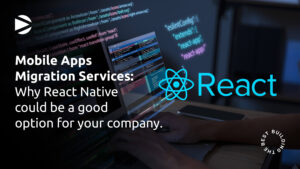Demystifying PaaS: A Comprehensive Guide for Startups Part 1: What is PaaS
Table of Contents
1. Introduction
2. What is PaaS?
Platform as a Service (PaaS) stands as a beacon in the cloud computing landscape. But what exactly is PaaS? At its core, PaaS is a cloud service model that provides a platform allowing customers to develop, run, and manage applications. It does this without the intricate dance of building and maintaining the underlying infrastructure. Think of it as the middle ground in the cloud ecosystem, offering more control than SaaS but less granular management than IaaS.
Now, let’s break down the cloud service models:
– Infrastructure as a Service (IaaS): This is the bedrock. IaaS provides the raw materials of the cloud world. It offers fundamental building blocks like computing power, storage, and networking capabilities. Users get a virtualized environment to install, run, and manage their software, including operating systems and applications.
– Software as a Service (SaaS): The ready-to-use toolset. SaaS delivers software applications over the internet on a subscription basis. There is no need to install or run the application on individual computers. It’s all managed by third-party vendors. Think of tools like CRM systems or office suites accessible via web browsers.
– Platform as a Service (PaaS): The bridge. PaaS sits comfortably between IaaS and SaaS. It provides a platform, a space where developers can craft their applications without fretting over the nitty-gritty of infrastructure management. It’s the realm where coding meets convenience, where infrastructure limitations don’t interfere with innovation.
While IaaS gives you the tools and SaaS provides the finished product, PaaS offers a well-equipped workshop. PaaS emerges as the go-to cloud solution for startups and developers aiming to create bespoke applications tailored to their needs.
3. The Rise of PaaS in the Startup Ecosystem
The startup landscape has witnessed a transformative shift in recent years — a shift powered by Platform as a Service (PaaS). As the digital realm expands, startups increasingly turn to PaaS solutions, making it a cornerstone of their technological strategy. But why this sudden surge in PaaS adoption among startups?
Increasing Adoption of PaaS by Startups
The digital age demands agility, and startups, with their dynamic nature, are always looking for tools that can supercharge their growth. PaaS, with its promise of streamlined application development without the hassles of infrastructure management, fits the bill perfectly. It’s not just a platform; it’s a launchpad that propels startups into the future, allowing them to innovate faster and deliver more.
Benefits of PaaS for Startups
– Cost Savings: One of the primary attractions of PaaS is its cost-effectiveness. Often operating on tight budgets, startups can significantly reduce their IT expenditures. There is no need for hefty investments in hardware or worries about maintenance costs. With PaaS, startups only pay for what they use, leading to optimal resource utilization and reduced overheads.
– Scalability: As startups grow, so do their technological needs. PaaS solutions are inherently scalable, allowing businesses to adjust their resources based on demand. Whether handling a surge in users or expanding to new markets, PaaS ensures that startups can scale seamlessly.
– Flexibility: In the ever-evolving world of technology, flexibility is paramount. PaaS allows startups to choose their development tools, languages, and frameworks. It empowers them to build applications tailored to their unique needs, ensuring they remain agile and responsive to market changes.
The rise of PaaS in the startup ecosystem isn’t just a trend; it’s a testament to its transformative potential. As startups continue to shape the future of business and technology, PaaS stands by their side, offering the tools, the platform, and the promise of endless possibilities.
4. Top PaaS Providers in the Market
Platform as a Service (PaaS) providers bring their unique blend of features, services, and innovations. For startups and businesses venturing into the cloud, choosing the right PaaS provider can be the difference between soaring success and missed opportunities. Let’s delve into the leading players in the PaaS market and what they offer.
1. Google Cloud (Google App Engine and Firebase):
– Overview: Google’s serverless platforms, App Engine and Firebase, are designed for building and hosting applications in Google’s managed data centers. While App Engine caters to general web applications, Firebase specifically targets mobile and web app development.
– Unique Features: Supports a wide range of programming languages. Fully managed environment, ensuring developers can focus on code while Google handles the infrastructure. Firebase offers real-time databases, authentication, and hosting, making it a go-to solution for mobile developers.
2. AWS Elastic Beanstalk
– Overview: Amazon’s foray into the PaaS world, Elastic Beanstalk, is a robust solution tailored for web application deployment.
– Unique Features: Supports multiple languages like Java, .NET, and Python. It offers automatic scaling, load balancing, and health monitoring and provides the flexibility of manual control over the underlying infrastructure.
3. Microsoft Azure:
– Overview: Microsoft’s cloud platform, Azure, offers many services, with its PaaS offerings standing out for their versatility.
– Unique Features: Provides a wide array of development tools and frameworks. Enables seamless integration with other Microsoft products and offers Windows and Linux-based environments.
4. IBM Cloud:
– Overview: IBM Cloud combines PaaS with Infrastructure as a Service (IaaS) to offer a comprehensive cloud solution.
– Unique Features: Incorporates IBM Red Hat OpenShift for cloud-native application development. Offers tools for modernizing existing applications and integrating AI capabilities.
5. Others:
– Heroku: Known for its developer-friendly platform and integration with Salesforce.
– Red Hat OpenShift: A Kubernetes-based PaaS solution, ideal for containerized applications.
– Oracle Cloud Platform: Offers PaaS and IaaS solutions, focusing on database services and machine learning.
Comparative Insights
While each provider has its strengths, the choice boils down to specific business needs. AWS and Google Cloud are often lauded for their scalability and vast service offerings. In contrast, Microsoft Azure stands out for its integration capabilities, especially for businesses already entrenched in the Microsoft ecosystem. IBM Cloud and Oracle cater to enterprises looking for robust solutions focusing on data and AI.
The PaaS market is rich with options. Startups and businesses must assess their goals, technical requirements, and budget constraints to zero in on the PaaS provider that aligns best with their vision.
Learn more about our services!
Or contact us directly! Ask away!
And we will have the perfect role for out-of-the-box thinking developers ready to change the game and enhance your business to new heights.


